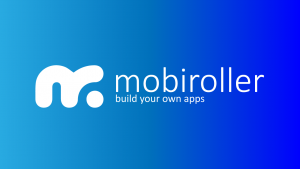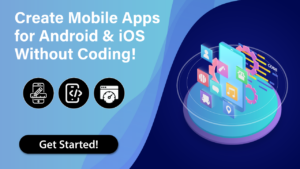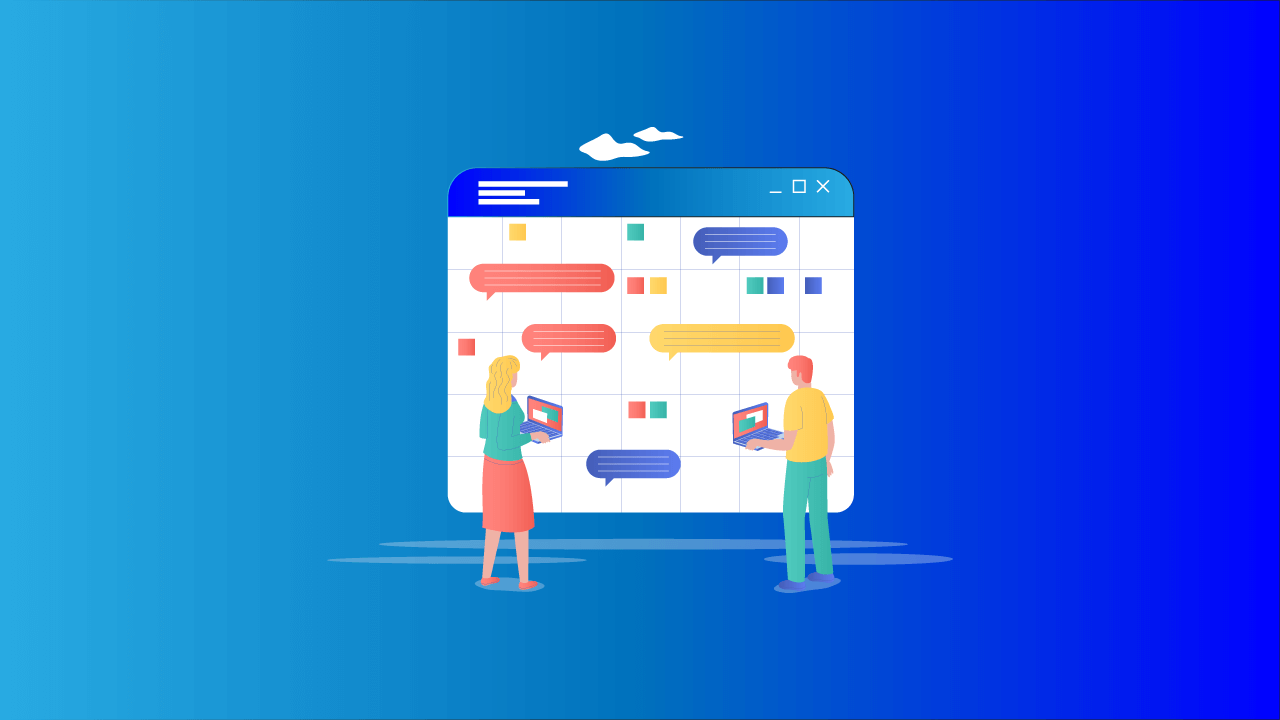Mobile app development Platforms are software applications and platforms used to create, design, test, and deploy applications for various mobile operating systems such as iOS, Android, and others. These Platforms are designed to assist app developers in streamlining the development process, making it easier and faster to build high-quality, feature-rich, and user-friendly mobile apps. They offer a range of functionalities, such as user interface design, code editing, debugging, testing, and integration with backend services. With the help of these Platforms, developers can create mobile apps that are optimized for performance and deliver an exceptional user experience.
Importance of Mobile App Development Platforms
The importance of mobile app development Platforms can be summarized as follows:
- Streamlined Development Process: Mobile app development Platforms simplify and streamline the development process by providing a range of functionalities, such as user interface design, code editing, debugging, and testing, in a single platform. This makes it easier and faster for developers to build high-quality, user-friendly mobile apps.
- Improved Productivity: It helps developers to be more productive by providing a range of features, such as code autocompletion, syntax highlighting, and debugging, that save time and reduce the number of errors in the code.
- Enhanced User Experience: It provides a range of design and user interface elements that help developers create apps with a visually appealing and intuitive user interface, which enhances the overall user experience.
- Cross-Platform Development: It supports cross-platform development, which means developers can create apps that run on multiple operating systems using a single codebase. This saves time and reduces costs compared to developing separate apps for each platform.
- Cost-Effective: It provides an economical alternative to traditional app development methods, as they eliminate the need for developers to build and maintain separate development environments for each platform.
- Access to Resources: It often provides access to a range of resources, such as tutorials, forums, and support, that can help developers improve their skills and overcome development challenges.
Mobile app development Platforms are an essential component of modern mobile app development. They provide developers with the Platforms and resources they need to create high-quality, user-friendly, and cross-platform mobile apps efficiently and cost-effective.
Types of Mobile App Development Platforms
There are three main mobile app development Platforms: native, hybrid, and cross-platform.
- Native App Development Platforms: Native app development Platforms are designed to create apps specifically optimized for a particular mobile operating system, such as iOS or Android. These Platforms use the native programming language of the operating system and provide access to the device’s full range of features and capabilities. Examples of native app development Platforms include Xcode for iOS and Android Studio for Android.
- Hybrid App Development Platforms: These Platforms allow developers to create apps that run on multiple operating systems using a single codebase. These apps are built using a combination of HTML, CSS, and JavaScript and are wrapped in a native container, which provides access to the device’s features and capabilities. Examples of hybrid app development Platforms include React Native and Ionic.
- Cross-Platform App Development Platforms: Cross-platform app development Platforms allow developers to create apps that run on multiple operating systems using a single codebase, similar to hybrid app development Platforms. However, cross-platform app development Platforms use a unique programming language and provide access to the device’s features and capabilities through a unified API. Examples of cross-platform app development Platforms include Flutter and Xamarin.

The choice of mobile app development Platform depends on the project’s specific requirements, the development team’s skills and experience, and the desired outcome. Each Platform has its strengths and weaknesses, and the best choice will depend on the project’s specific needs.
Key Features of Mobile App Development Platforms
The key features of mobile app development Platforms include the following:
- User Interface Design: Many mobile app development Platforms provide a range of design elements, such as templates, UI components, and drag-and-drop interfaces, to help developers create visually appealing and intuitive user interfaces.
- Code Editor: Mobile app development Platforms typically include a code editor that provides code autocompletion, syntax highlighting, and debugging to help developers write error-free code more efficiently.
- Debugging and Testing: Mobile app development Platforms often provide built-in debugging and testing Platforms to help developers identify and fix issues in their code. This can save time and reduce the number of errors in the final product.
- Integration with Backend Services: Many mobile app development Platforms integrate backend services, such as databases and APIs, to allow developers to create apps that interact with these services.
- Performance Optimization: Mobile app development Platforms often provide performance optimization features, such as memory management and CPU utilization Platforms, to help developers create apps that run smoothly and efficiently on different devices.
- Access to Resources: Many mobile app development Platforms provide access to various resources, such as tutorials, forums, and support, to help developers improve their skills and overcome development challenges.
Best Mobile App Development Platforms
-
Native App Development Platforms
- Xcode: Xcode is Apple’s official development Platform for iOS, iPad, macOS, watchOS, and tvOS. It includes a code editor, debugging Platforms, graphical user interface design features, and more.
- Android Studio: Android Studio is Google’s official integrated development environment (IDE) for creating apps for the Android platform. It includes a code editor, debugging Platforms, graphical user interface design features, and more.
- Mobiroller: Mobiroller is a cloud-based mobile app development platform that enables developers to create apps without coding. It offers easy drag-and-drop design, automated testing, and integration with various third-party services.
-
Hybrid App Development Platforms
- React Native: React Native is a popular open-source hybrid app development Platform that allows developers to create apps for iOS and Android using a single codebase.
- Ionic: Ionic is a popular hybrid app development Platform that uses Angular and HTML to create iOS, Android, and web apps.
-
Cross-Platform App Development Platforms
- Flutter: Flutter is a free and open-source mobile app development Platform that uses the Dart programming language to create high-performance and visually appealing apps for iOS and Android.
- Xamarin: Xamarin is a cross-platform app development Platform that uses the C# programming language to create native apps for iOS, Android, and Windows.
Factors to Consider when Choosing a Mobile App Development Platform
When choosing a mobile app development Platform, it’s important to consider the following factors:
- Project Requirements: The first factor to consider is the project’s specific requirements. This includes the desired outcome, the target audience, the desired platform (iOS, Android, or cross-platform), and the app’s complexity.
- Development Skills and Experience: The second factor to consider is the skills and experience of the development team. Some Platforms may require specific programming languages or development skills, so choosing a Platform compatible with the team’s existing skillset is important.
- Budget: The third factor to consider is budget. Some Platforms may be free or open source, while others may require a subscription or license fee. It’s important to choose a Platform that fits the project’s budget constraints.
- Performance and Scalability: The fourth factor to consider is performance and scalability. It’s important to choose a Platform that is optimized for performance and can scale to meet the demands of a growing user base.
- User Experience: The fifth factor to consider is user experience. It’s important to choose a Platform that provides a range of design elements and user interface components to help create visually appealing and intuitive user interfaces.
Why Choose Mobiroller?
Mobiroller is a powerful mobile app development platform that offers a range of features to help you easily build high-quality and user-friendly apps. With Mobiroller, you can take advantage of its intuitive drag-and-drop interface, which makes it easy to design the look and feel of your app. Additionally, Mobiroller provides access to a wide range of templates, UI components, and design elements, so you can create an app that stands out and meets the needs of your target audience. Whether a seasoned app developer or just starting, Mobiroller provides the Platforms and resources you need to build great apps quickly and efficiently. With Mobiroller, you can bring your app ideas to life and take the first step toward success in the mobile app market.
QUESTION AND ANSWERS
Q: What Are Some Factors To Consider When Choosing A Mobile App Development Platform?
A: When choosing a mobile app development Platform, it’s important to consider the project requirements, the skills and experience of the development team, the budget constraints, performance and scalability, and user experience.
Q: What Advantages Does Mobiroller Offer?
A: Mobiroller offers a range of advantages for mobile app development, including an intuitive drag-and-drop interface, access to templates, UI components, design elements, and more. It also boasts powerful features that make app development easy and efficient, so you can quickly turn your app ideas into reality.
Q: What Makes A Good Mobile App Developer?
A: A good mobile app developer has experience in developing mobile applications, understands the different platforms and technologies available, and stays up to date with new technologies to create innovative solutions. A successful mobile app developer should also have excellent communication skills, be able to problem solve quickly and possess a creative mindset.
Q: What Are The Common Elements Of Successful Mobile Apps?
A: Successful mobile apps typically have a well-designed user interface, intuitive navigation and interaction, engaging content or features, a focus on the target audience’s needs, and an effective monetization strategy. Successful mobile apps are often regularly updated with new features to keep users engaged.
Q: How Do You Identify The User Needs When Developing A Mobile App?
A: When developing a Mobile app, it is essential to identify the user’s needs to create an application that meets their expectations. To do this, you can conduct user research to understand their goals and motivations better when using the app. You should also consider feedback from existing users and evaluate other relevant data, such as usage statistics. This will help you create a mobile app tailored to the user’s needs.
Q: What Technologies Are Used In Mobile App Development?
A: Mobile app development typically involves a combination of different technologies, such as HTML5, CSS3, JavaScript, and other frameworks like React Native and Ionic. Additionally, various APIs may be used depending on platform requirements, such as Apple Maps API or Google Maps API. Other technologies used in mobile app development include databases, cloud services, security protocols, and more.
CONCLUSION
In conclusion, mobile app development Platforms are invaluable for creating high-quality and user-friendly apps. Each Platform has its features, so choosing the right one is important based on your project requirements, budget, team skill set, and desired outcomes. For those just getting started in mobile app development, Mobiroller is a great platform to consider. It provides powerful features that make app development easy and efficient. With Mobiroller, you can quickly turn your app ideas into reality and get a leg up in the competitive mobile app market. Empower your app vision with Mobiroller’s intuitive and feature-rich platform. Start building today!








